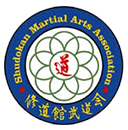Have you ever noticed how training in one martial art seems to unlock understanding in another?
Do certain movements feel familiar—even when the techniques look completely different?
Many martial artists reach a point where they sense there’s something deeper connecting their training across disciplines. This idea sits at the heart of Martial Artists as Shapeshifters by Daniel Holland, and it reflects a core principle long supported by the International Martial Arts Association: true mastery comes from understanding movement, not memorizing techniques.
The Martial Artist as a Shapeshifter
In Martial Artists as Shapeshifters, Daniel Holland presents a compelling idea: martial arts are not
simply collections of techniques, but systems of postural intelligence. Each art trains the body to express energy in specific, intentional ways—ways that can be adapted across contexts.
Rather than viewing jujutsu, judo, and iaido as isolated practices, Holland encourages us to see them as different expressions of the same underlying human mechanics. The martial artist becomes a “shapeshifter,” capable of reorganizing posture, balance, and intent to meet changing demands.
This perspective aligns strongly with the broader educational mission of the International Martial Arts Association, which emphasizes principle-based understanding over rigid stylistic boundaries. You can learn mor about this in our latest article.
Why Unified Movement Matters in Martial Arts Study
Seeing martial arts as systems of postural intelligence transforms how we train, learn, and evolve. When jujutsu, judo, and iaido are understood as different expressions of the same human mechanics, practitioners gain adaptability, insight, and longevity in their practice.
Explore more martial scholarship, historical perspectives, and movement-based insights through the SMAA Library, and continue developing as a martial artist who understands not just what to do—but why it works. Have questions? Reach out!
















